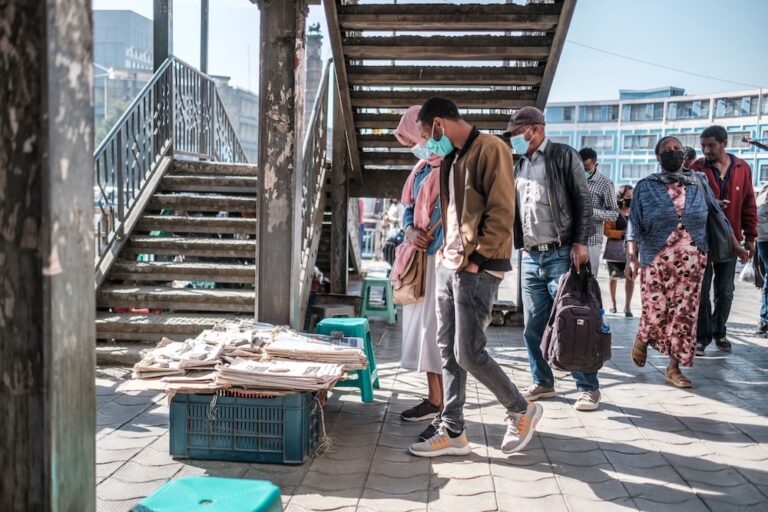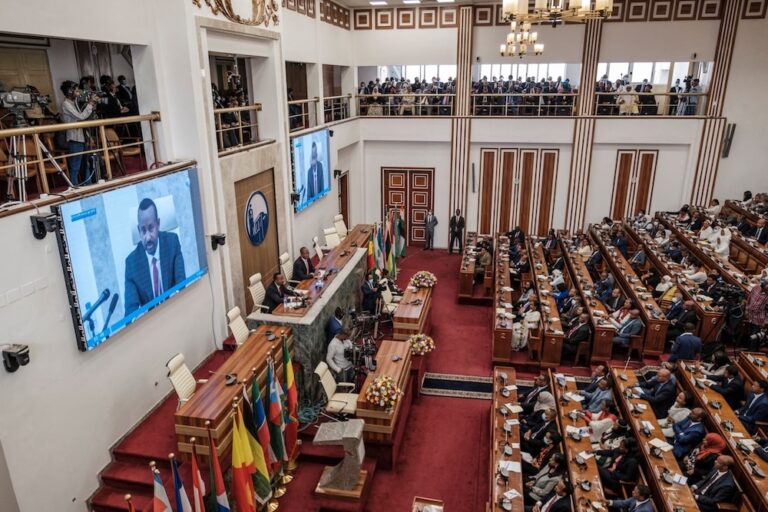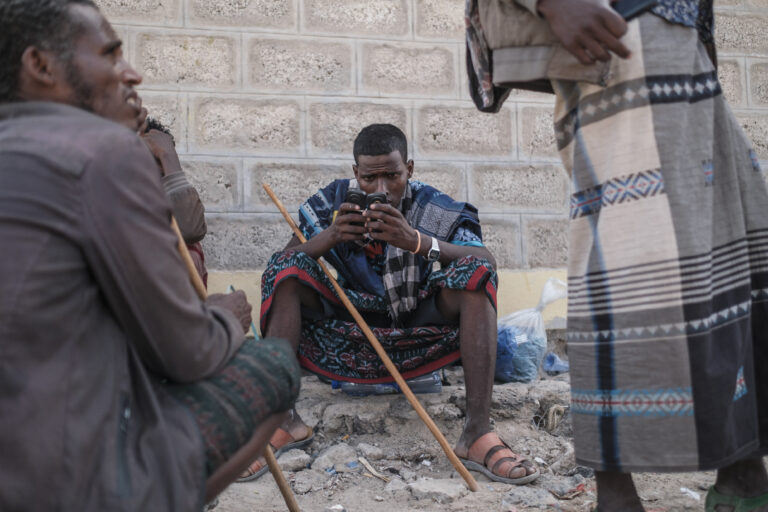(RSF/IFEX) – Reporters Without Borders has condemned the Ethiopian Supreme Court’s decision on 26 January 2007 to reject an appeal by journalist Abraham Reta of the privately-owned weekly “Addis Admas” and send him back to prison to complete the one-year sentence he received in April 2006 for allegedly libelling three senior officials. “We will not […]
(RSF/IFEX) – Reporters Without Borders has condemned the Ethiopian Supreme Court’s decision on 26 January 2007 to reject an appeal by journalist Abraham Reta of the privately-owned weekly “Addis Admas” and send him back to prison to complete the one-year sentence he received in April 2006 for allegedly libelling three senior officials.
“We will not be able to talk of press freedom in Ethiopia as long as heavy prison sentences are being handed down in such an abnormal manner on journalists whom the government sees fit to classify as opposition members,” the press freedom organisation said. “A way must be quickly found to release all the journalists who are in prison. Detaining part of the press and making the other part live in fear of being detained will only aggravate the general situation.”
Reta was convicted of libel last year over an article published in 2002, when he was editor of the now-defunct weekly “Ruh”. He was accused of having no evidence for linking three senior officials to a corruption case.
He was arrested on 24 April 2006 and spent three months in prison before being released conditionally pending the outcome of his appeal. After several appeal hearings in which he insisted on his innocence and was forced to identify his source, he has been sent back to prison to serve the nine remaining months of his sentence.
Imprisoning journalists in cases that date back years is common practice in Ethiopia. Leykun Engeda, the former editor of the now-defunct weekly “Dagim Womchif”, was sent to prison on 27 December 2006 to serve the 15-month prison sentence he had received the previous December on account of a 1999 article about a rebel movement called the Ethiopian Patriotic Front. He had appealed to the Supreme Court.
Tesehalene Mengesha, the former editor of the privately-owned weekly “Mabruk”, was sentenced on 5 May 2006 to 18 months in prison in a libel case going back seven years. Abraham Gebrekidan, the editor of the now-defunct weekly “Politika”, received a one-year sentence in March 2006 for “publishing false news” in a 2002 article. Wosonseged Gebrekidan, the editor of the privately-owned weekly “Addis Zena” and former editor of the privately-owned weekly “Ethiop”, was sentenced to eight months in prison in December 2005 for alleged libel in a 2002 article which he did not write.
A total of 21 journalists are currently detained in Ethiopia. Fifteen of them belong to a group of at least 76 people – opposition members, civil society leaders and privately-owned media staff – who have been facing trial since late 2005 on charges of treason, conspiracy to overthrow the government and genocide.
Two other journalists, Shiferraw Insermu and Dhabassa Wakjira of the state-owned Ethiopian Television (ETV), have been held since April 2004 on charges of being informers for the separatist Oromo Liberation Front (OLF).


